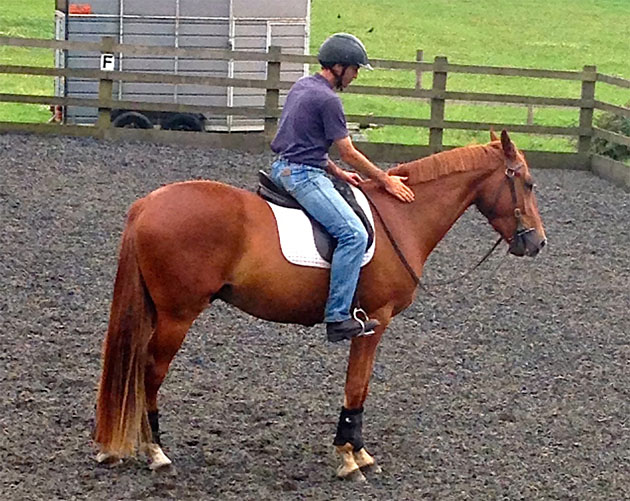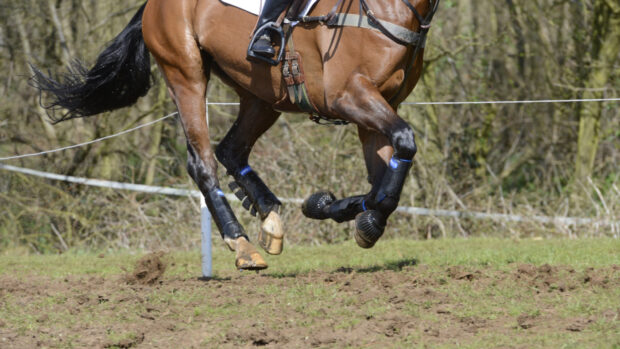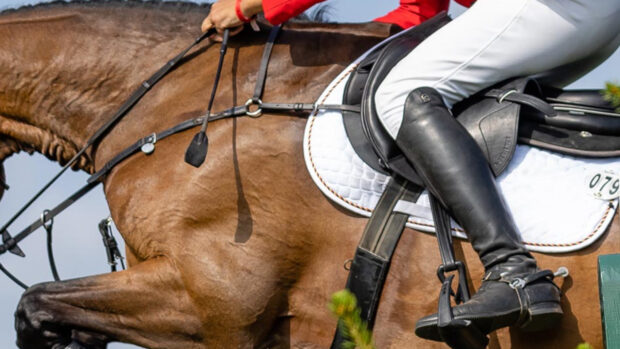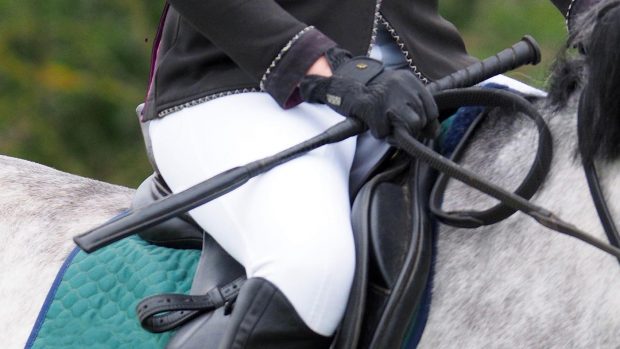Jason Webb of Australian Horse Training is a renowned UK-based horse trainer with a passion for starting young horses, solving equine problems and teaching riders of all abilities and ambitions develop and strengthen the partnership they have with their horses. Here Jason gives one H&H forum user advice on whether they need a whip
Q: “Do I need a whip? My mare has just been broken. I do not ride with a whip out hacking but use a schooling whip in the school or when riding alone. I never have to use it but holding it seems enough. What are your thoughts on riders carrying whips? Do they really need them?”
A: Whips can be a contentious subject — here are my thoughts.
Whips are like anything used correctly they are a useful tool for some horses. I know some people are strongly opposed to whips and it can go as far as should I use my legs on a horse, should I use a bit, should I even be riding this animal? My take on all this is a domesticated horse should have a symbiotic relationship with their owner. They try for us and in return we care for them.
What it comes down to is your intentions. When I use a whip it’s to help create a more positive and willing horse.
Before using a whip I ask myself:
What is the horse’s attitude?
If a horse is not trying then I will use the whip with just enough energy to create a forward push. One half of the problems with people using whips is they are not prepared to project themselves and use enough energy to generate this push. If a horse learns they don’t have to respond because they feel you don’t mean what you say, then they will quickly become disrespectful which can lead onto dangerous behaviour.
The other half of problems caused by whips is using them with the wrong intentions — as a punishment. Whips are used for movement and movement is the key to having a horse with a willing attitude.
Continued below…
Related articles:
Is what I’m asking reasonable?
A reasonable ask is something that a horse is physically and mentally capable of. Time and energy creates pressure as we know, and I have no problem with pressure. I think it is necessary in shaping a consistent horse and creating change where necessary. It’s using the right amount of energy, which could be generated by a whip, at the right time to create a movement, which is most important. This requires empathy, understanding and above all experience.
There was a rule bought into racing limiting the use of a whip in the home straight while racing. All things considered, this was a good move because some horses where having their hearts broken. This happens when a horse is trying and doing all it physically can and they are still being asked for more and because they can’t, they give up. This is not a reasonable ask.
I would say most jockeys I watch in racing use a whip well with rhythm and feel, and most know when their horse is at its limit. But as with most rules, they are made for the few.
Is my communication clear?
Using a whip with some horses may be necessary to create a willing attitude, particularly as they are asked to apply themselves more. This being said all riders and handlers should be working away from a whip. To do this you need good communication.
The first part of this is using a whip in a sequence ‘cue, click, tell’, the tell being the whip. Using a whip in this sequence will mean your horse learns to respond to your cues before you use the whip.
The most important thing in moving away from the use of a whip and not needing one again is to ride forward without fear or expectation in the beginning and to ride with perfect balance, timing and feel in the end. Very few people get to this end point but everybody should be trying.
Something I have learnt over the years is that horses are happiest when their world is consistent. If your horse is responding inconsistently to your aids then there will be doubt. This could be doubt in what your doing or doubt in what they should be doing. Either way you will land up in a potentially negative place. If using a whip at the right time, in the right place, helping to maintain consistency, I know I am helping my horse stay in a positive place. If you have kids, you’ll be particularly aware of this!
You might find this video helpful too.
For more information on Jason Webb and his online training base Your Horsemanship, where you can learn a foundation in horse training with online lessons in groundwork, starting, and ridden fundamentals, visit his website




